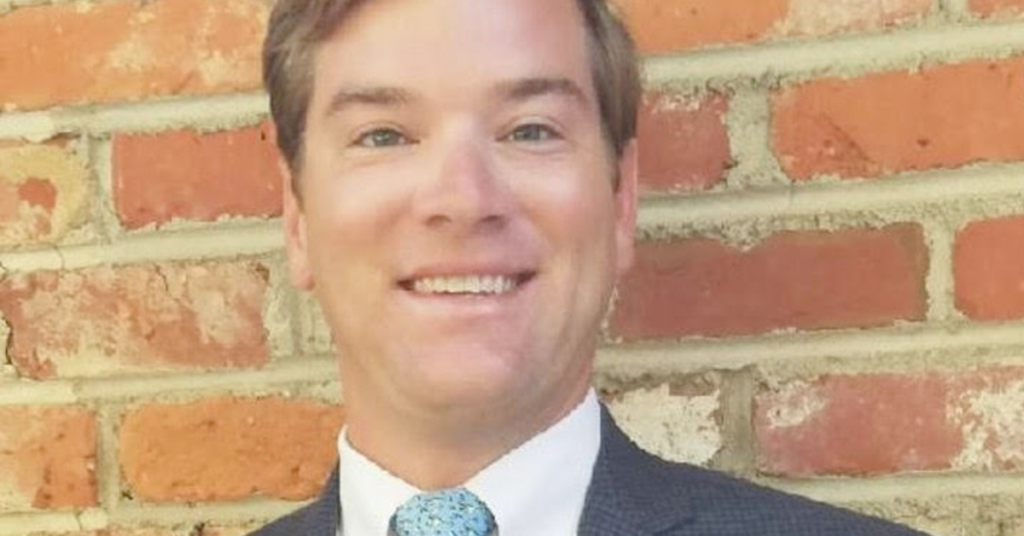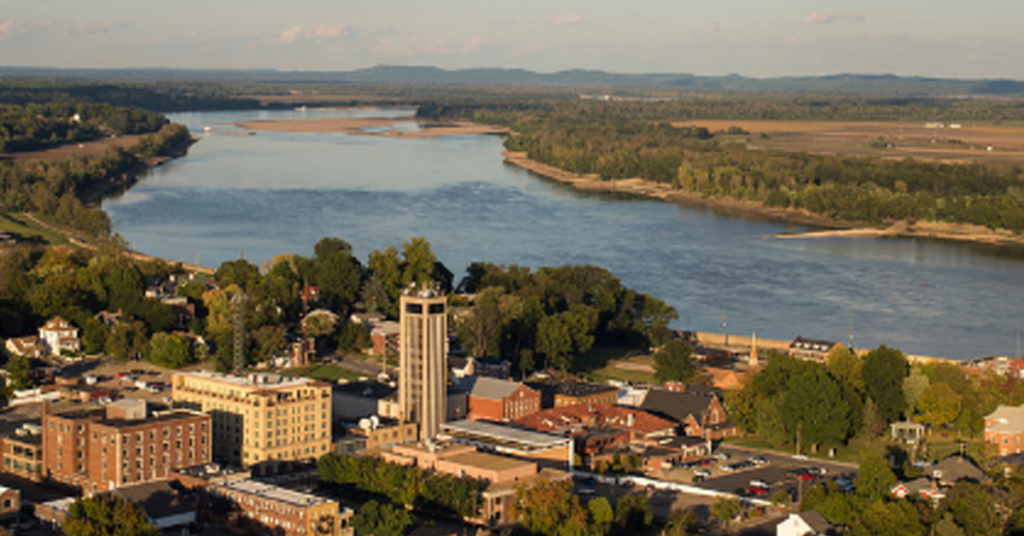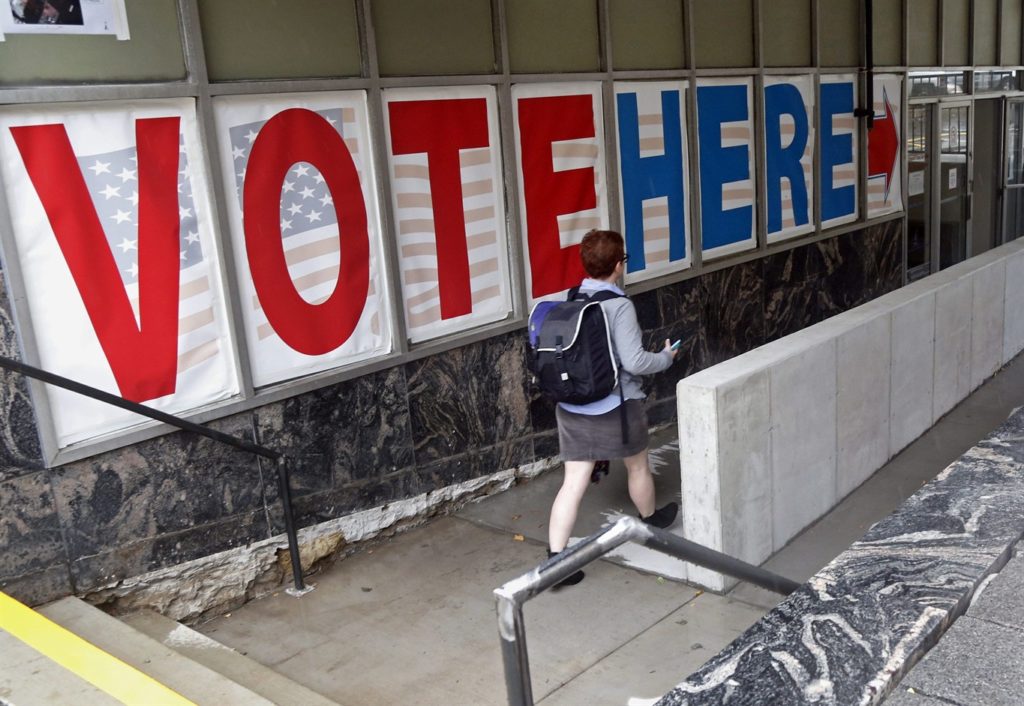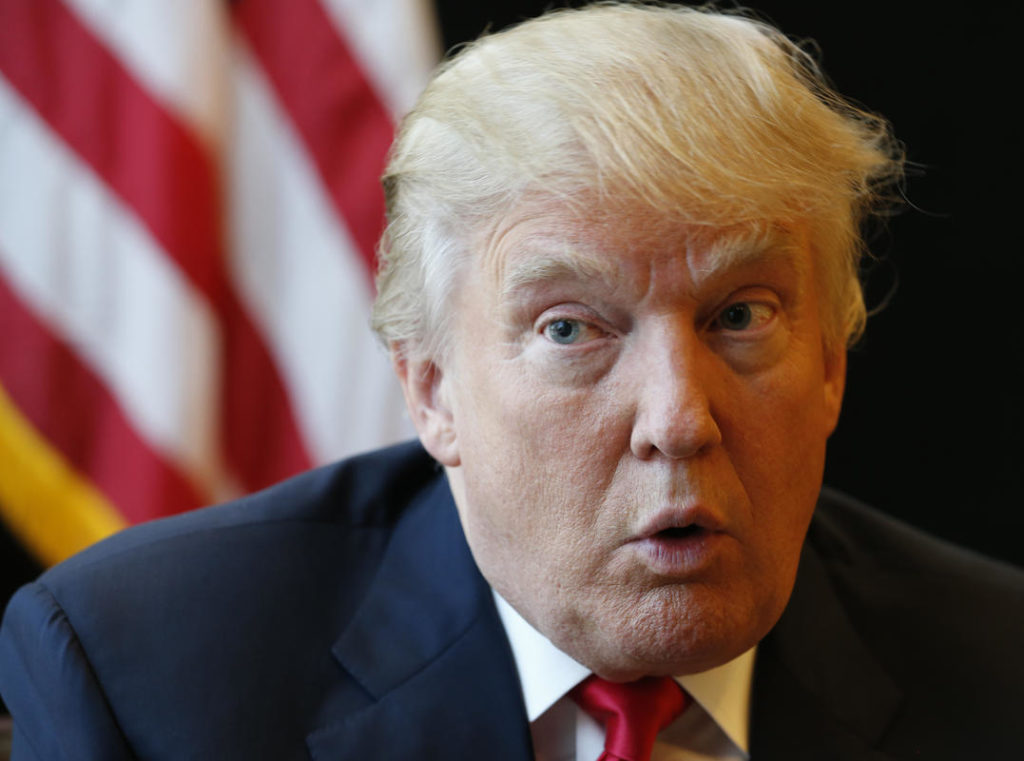Personnel note: former state director for Richard Shelby, Garrett Jemison, joins Bloom Group

Former state director for Senator Richard Shelby, Garrett Jemison has joined Montgomery-based government affairs firm, the Bloom Group. Jemison, a Montgomery native himself, joins the firm as an associate. After graduating from The University of Alabama with BA in Political Science with a minor in Public Relations in 2008, Jemison continued the association he formed with Senator Richard Shelby as an intern while still in school when Senator Shelby selected Jemison to serve in his personal office. Jemison next went to work at Mowery Consulting Group, a strategic communications, public relations and campaign consulting firm. In 2011, Senator Shelby asked Jemison to serve as his State Director, where he oversaw in-state operations and set up events in all 67 counties for the senator’s annual state tour, giving him a first-hand look at the needs of everyday Alabamians across all regions of the state. He also spent a year working with Franklin Resources Group in Montgomery as an associate from 2014-2015. In 2014, Jemison formed Jemison Inc., and now, in addition to his work with The Bloom Group, he maintains a diverse portfolio of clients ranging from energy, defense and education, to associations, municipalities and counties. According to The Bloom Group’s founder and principal Hal Bloom, Jemison will add considerable depth to the firm’s expertise. “The Bloom Group is honored to represent some of the finest businesses and trade organizations in Alabama and the nation and proud to announce Garrett as a new player on our team,” Bloom said. Jemison is equally pleased with his new position. “I’m thrilled to have the opportunity to put the skills I’ve gained in my career to good use through The Bloom Group,” he said. Jemison and his wife Emily live in Montgomery.
Delta Leadership Institute Executive Academy welcomes new class, eight Alabamians

Eight Alabama community and business leaders are among the 53 fellows selected to complete the yearlong Delta Leadership Institute Executive Academy, a program of the Delta Regional Authority. In its 12th year, the Executive Academy is a training program that brings together business and community leaders from each of the eight states of the Mississippi River Delta and Alabama Black Belt regions for a collaborative leadership development experience, emphasizing regional approaches to growing local economies and creating opportunities for people of the Delta region. “Alabama has a strong partnership with the Delta Regional Authority, and I am proud of the community leaders from Alabama who have been chosen for the new class,” Gov. Robert Bentley said. “I know firsthand the importance of DLI to rural communities and the state as a whole. I will serve as the incoming DRA State’s Co-chair, and I look forward to seeing the success of this class.” The 2016-2017 DLI Executive Academy fellows from Alabama are: Carrie Banks: Communications Director, Alabama League of Municipalities Marcus Campbell: Chairman, Sumter County Commission Cedric Campbell: Project Manager, Board of Directors, Goodwyn, Mills and Cawood, Inc. Winfield Ezell, Jr: CEO, Obsidian Creative Studios Darrio Melton: State Representative and Mayor-Elect, City of Selma Maureen Neighbors: Community Services Unit Chief, Alabama Department of Economic and Community Affairs Susan Smith: City Councilwoman, City of Atmore Tiffany Smith: Americorps VISTA/Community Needs and Partnership Development, United Way of West Alabama Each student will complete leadership development coursework and field studies in the yearlong program that includes seven sessions in Delta communities and Washington D.C — engaging in advocacy training, case study discussions, and on-the-ground field experiences of priority issue areas for the region, including: workforce training and education; entrepreneurship and disaster resilience for small businesses; public health; policy and governance; transportation and infrastructure; and culture and tourism. The Delta Regional Authority is a federal-state partnership created by Congress in 2000 to help create jobs, build communities, and improve lives through strategic investments in economic development in 252 counties and parishes across eight states. Through the Rural Communities Advancement Program, the DRA has provided leadership development to more than 400 community leaders over 10 years and strengthened regional collaboration with its Delta Leadership Institute. “The DRA is committed to increasing the capacity of our region’s talent — and we believe that investing in our people is the best way to do just that,” said DRA Federal Co-chairman Chris Masingill. “These leaders have already accomplished so much in their own communities. Now the DLI will help them further their work —establishing regional networks and harnessing the energy of these leaders to make our Delta stronger.”
Automotive supplier MöllerTech chooses Bibb County for $46.3M investment, creates 222 jobs

Alabama’s manufacturing base is expanding once again. German automotive supplier MöllerTech announced Monday they will build a new state-of-the-art manufacturing facility in Bibb County, creating 222 jobs. Alabama Gov. Robert Bentley was joined by MöllerTech North American CEO Steve Jordan, along with economic development and elected officials in Centreville, Alabama to announce the $46.3 million project. “Attracting investment and new jobs to Alabama’s rural counties is a key priority in our overall economic development strategy, and MöllerTech’s manufacturing facility in Bibb County represents the kind of project that we have been targeting,” Gov. Bentley said. “We now have new tools to help rural counties overcome the obstacles they face in economic development. We’re committed to using them.” MöllerTech will construct a 150,000-square-foot facility in the Scott G. Davis Industrial Park, near Interstate 20/59 in northern Bibb County, near the Woodstock community. The plant will manufacture interior parts for next-generation Mercedes-Benz SUVs, which are part of a $1.3 billion expansion Mercedes announced in 2015. Jordan said the Bibb County facility will serve as the company’s flagship manufacturing facility, incorporating new ideas and best practices from other operations in the company’s manufacturing footprint. “After many months visiting various states, as well as numerous counties in Alabama, we are pleased to settle in Bibb County,” said Jordan. “Our Möller Culture is very much centered on people and local communities and because of that we find that there is ‘a good fit’ between MöllerTech and Bibb County.” Jordan continued, “The help that we received both financially as well as personally from the state and the county helped us in making this decision. So we would like to thank the State of Alabama as well as Bibb County in being patient and supporting us in this new venture of ours.” MöllerTech has two U.S. facilities, in Elberton, Georgia, and Detroit, Michigan. It hopes to be at full production in Bibb County by the end of 2019. The Birmingham region competed for the project with other sites in the Southeast. The Bibb County Commission, the Alabama Department of Commerce, the Economic Development Partnership of Alabama, Alabama Power Co., and the Birmingham Business Alliance worked together to bring the project to the Birmingham region. “As excited as we are for MöllerTech, Bibb County, the state, and all of the entities involved in this project, we are even more excited about MöllerTech’s future workforce and the impact the 222 job opportunities will have on them and their families,” said Brian Hilson, president and CEO of the Birmingham Business Alliance. MöllerTech represents the 18th German corporate investment in the seven-county Birmingham metropolitan area. Those 18 companies will employ approximately 1,700 people when MöllerTech is operational. “This will be a great boost for Bibb County and its workforce,” said Bibb County Commissioner Ricky Hubbard. “MöllerTech will be the second-largest manufacturing employer in the county and the third-largest overall. We are excited that their investment will impact the lives of so many people here.”
State aide sought to change classification of Hillary Clinton email

A senior State Department official asked the FBI to help last year in reducing the classification of an email from Hillary Clinton‘s private server, according to bureau records released Monday. It was to be part of a bargain that would have allowed the FBI to deploy more agents in foreign countries, according to the records. It was not immediately clear whether the State Department official or someone at the FBI first raised the prospect of a bargain over the email’s classification. The bureau records, citing an FBI official whose name was censored, said Undersecretary for Management Patrick F. Kennedy sought assistance in exchange for a “quid pro quo.” But the FBI’s separate statement Monday said it was the now-retired FBI official who first asked Kennedy about deploying more agents overseas. The FBI ultimately rejected the idea, which would have allowed the State Department to archive a message related to the 2012 attacks on the U.S. diplomatic compound in Benghazi, Libya, in the basement of its Washington headquarters “never to be seen again,” according to the FBI files. The email described reports in November 2012 that Libyan police were arresting suspects in the attack. It had been forwarded to Clinton’s private email address by Jake Sullivan, one of her top aides and the department’s director of policy planning, who was using his government email account. Republicans quickly seized on the report as collusion within the Obama administration to protect Clinton, now the Democratic presidential nominee. “CORRUPTION CONFIRMED: FBI confirms State Dept. offered ‘quid pro quo’ to cover up classified emails,” read a tweet from Team Trump, retweeted by the candidate. Clinton campaign manager Brian Fallon said, “It is well known that there was strong disagreement among various government agencies about the decisions to retroactively classify certain material in emails sent to Secretary Clinton. Agencies that took issue with this overclassification did so based on their own beliefs, and we were not part of these disagreements that played out inside the government.” Kennedy was a close aide to Clinton during her tenure as the nation’s top diplomat between 2009 and early 2013. He had served in his position since November 2007 under President George W. Bush. In the FBI records, a bureau official said Kennedy “asked his assistance in altering the email’s classification in exchange for a ‘quid pro quo,’” and that in exchange “State would reciprocate by allowing the FBI to place more agents in countries where they are presently forbidden.” The FBI said Monday the now-retired FBI official had fielded Kennedy’s request to change the email classification and had said it would be considered if Kennedy “would address a pending, unaddressed FBI request for space for additional FBI employees assigned abroad.” The bureau said the FBI subsequently investigated the proposed arrangement but did not describe the outcome of that review. “Although there was never a quid pro quo, these allegations were nonetheless referred to the appropriate officials for review,” the FBI said in its Monday statement. The State Department said Kennedy had been trying to understand the FBI’s classification decisions. “This allegation is inaccurate and does not align with the facts,” department spokesman Mark Toner said in a statement. He also said there was never an increase in the number of FBI agents assigned to Iraq as a result of the conversations. The disclosure was included in 100 pages the FBI released from its now-closed investigation into whether the former secretary of state and her aides mishandled sensitive government information that flowed through the private mail server located in her New York home. Kennedy proposed using an obscure provision under the U.S. Freedom of Information Act to keep the existence of the secret document from becoming public, the FBI files said. The provision, known as “B9,” is intended to protect geological and geophysical information and data, including maps, concerning wells and is the most rarely used FOIA exemption. In fiscal 2015, the Obama administration cited it only 46 times out of 769,903 information requests. Most of those cases involved the Environmental Protection Agency and the Defense Department. “Kennedy told (redacted) that the FBI’s classification of the email in question caused problems for Kennedy and Kennedy wanted to classify the document as ‘B9,’” The FBI report says. “Kennedy further stated that the ‘B9’ classification would allow him to archive the document in the basement of DoS (Department of State) never to be seen again.” The FBI official said that after learning later that the information in question concerned the Benghazi attacks, he contacted Kennedy and told him there was “no way he could assist” with declassifying the material found in the email. The Associated Press reported the existence of the secret Benghazi-related email in May 2015, though the classified content of the document has never been made public. At the time, administration officials acknowledged interagency disagreements about whether certain information in the emails was classified, disagreements that the State Department said were contributing to the slow processing of their public release under the Freedom of Information Act. House Republicans said Monday that the reports of Kennedy’s behind-the scenes maneuvering with the FBI were “extremely disturbing” and called on him to be removed from his job at the State Department. “Those who receive classified intelligence should not barter in it – that is reckless behavior with our nation’s secrets,” said House Oversight and Government Reform Committee Chairman Jason Chaffetz, R-Utah, and House Intelligence Committee Chairman Devin Nunes, R-Calif., in a joint statement. Republished with permission of the Associated Press.
Most powerful presidential voters: Where does Alabama rank?

Alabama’s history of one-sided politics makes it one of the country’s least powerful states in presidential elections, a new study claims. That’s according to the personal-finance website WalletHub. With the presidential election just a few weeks away and voters’ influence varying across state lines, WalletHub conducted an in-depth analysis of 2016’s States with the Most & Least Powerful Voters. Their findings? Alabama has the seventh least-powerful voters in the nation. The last time the Yellowhammer State voted for a Democratic candidate was in 1976, for former president Jimmy Carter. Because of this predictability, WalletHub said it’s safe to say the state’s voters aren’t as powerful as those from a swing state. “In a presidential election, voter power varies widely by state. While all votes are theoretically counted equally — one person, one vote — the choices of swing-state citizens are more influential,” WalletHub said. “It’s safe to assume that Alabama will vote Republican and California will vote Democratic in the upcoming election. But the electoral results of swing states are up in the air, giving their voters more impact.” In order to determine the states with the most and least influential voters, WalletHub’s analysts calculated the Voter Power Scores for both presidential and Senate elections in each state. The analysts assessed win probabilities for the candidates in each state on a scale of 0 to 100 — 100 being awarded to swing states with a true 50/50 chance for either major party’s candidate. That number was divided by the state’s 18-plus population, then multiplied by 1 million. “If voting were easier, we might get a more representative sample of the population to vote,” Tracy L. Osborn, assistant professor of political science and director of the Politics and Policy Research Program in the Public Policy Center at the University of Iowa, told WalletHub. “Federal financing of congressional elections would eliminate the need to raise money and likely widen the type of candidates who ran for Congress. Shorter elections might reduce election fatigue in America.” Here’s how Alabama compares to the rest of the country: Source: WalletHub Alabama fares no better in the Senate races either, still ranking the seventh-least powerful state in the country. Here’s how the states compare in the Senate rankings: Source: WalletHub
Will the Senate confirm Barack Obama’s judicial nominees before he leaves?

Federal judges in New Jersey have struggled with a workload approaching 700 cases each, nearly double what’s manageable, because of judicial vacancies. In Texas, close to a dozen district judgeships remain open, more than in any other state. Senate confirmation of President Barack Obama‘s nominees slowed to a halt this election year, a common political occurrence for the final months of divided government with a Democratic president and a Republican-controlled Senate. The vacancy on the Supreme Court attracted the most attention as Republicans refused to even hold confirmation hearings for Merrick Garland, insisting that the choice to fill the vacancy created by the death of Justice Antonin Scalia in February rests with the next president. But more than 90 vacancies in the federal judiciary are taking a toll on judges, the courts and Americans seeking recourse. Obama has nominated replacements for more than half of those spots, including 44 nominees for the district court and seven for the appeals court. Yet the Senate has confirmed only nine district and appeals court judges this year – and only four since Scalia died. The U.S. court system has declared 35 of the vacancies “judicial emergencies,” a designation based on how many filings are in the district and how long the seat has been open. Senate Democrats, along with some Republicans who want to fill vacancies in their home states, are pushing Senate Majority Leader Mitch McConnell to hold confirmation votes in the lame-duck session between the election and the end of the year. But McConnell has said repeatedly that Obama has already gotten more judges confirmed over his eight years in office than President George W. Bush did. “I think President Obama has been treated very fairly by any objective standard,” McConnell, R-Ky., said last month. The Senate has confirmed 329 of Obama’s federal judicial nominees to lifetime appointments; 326 federal judges were confirmed under Bush. Obama prevailed in part because Democrats controlled the Senate for six of his eight years. Both Obama and Bush have had fewer confirmations than previous two-term presidents Bill Clinton and Ronald Reagan, who had 377 and 382 federal judges confirmed, respectively. Democrats point out that they confirmed 68 judicial nominees after taking control of the Senate in the last two years of the Bush administration. Republicans have only confirmed 22 nominees since taking control of the Senate early last year. “These vacancies make it harder for the federal courts to do their job,” said Sen. Dick Durbin of Illinois, the No. 2 Senate Democrat. He noted that 30 of the nominations have been approved in committee and are waiting for floor action. “The Republican majority will not give them votes even though some of these nominees have been waiting for nearly a year and even though they would be easily confirmed,” Durbin said. In Texas, there are 11 district court seats open, including some along the case-heavy border with Mexico. Obama has nominated replacements for five of the open district seats in Texas, and the state’s two Republican senators support them. But none has received a vote. “There are judges that want to retire but they are holding onto their seats because they know they may not be replaced for four to five years,” said Phillip Martin, deputy director of Progress Texas, a liberal advocacy group in Austin. Those pushing McConnell to move on the nominations are hoping that he will do so if Democrat Hillary Clinton wins the presidency, since Clinton is likely to re-nominate many of the same judges. That’s less likely if Republican Donald Trump wins, though the nomination process is often bipartisan. Home state senators typically work with the president, regardless of party, to choose judges for federal district courts. Tennessee’s two Republican senators back Edward Stanton, a district court nominee for that state, and Republican Sen. Pat Toomey, who is in a tough re-election fight, has been pushing for confirmation of several Pennsylvania judges. One of the nominees waiting the longest for a vote is Julian Neals, nominated in February 2015 to fill the seat in New Jersey’s 3rd District. The state has another district court vacancy as well, but Obama hasn’t nominated a replacement. Judge Jerome Simandle, the chief federal judge in New Jersey, told the state’s bar association in May that the vacancies have impaired their ability to promptly resolve cases. He said that the weighted caseload for judges in the state at that time was 700, compared to the court system’s standard of 430 per judge. “We desperately need a new judge in the federal courts in New Jersey, just based on the sheer numbers that statistics bear out,” said Thomas Prol, president of the New Jersey State Bar Association. Sen. Cory Booker, D-N.J., tried to move Neals’ nomination, but McConnell blocked him, offering instead to move four other judges. Booker objected, since Neals and Tennessee nominee Stanton – who are both black – were next in line to be confirmed. “Continued judicial vacancies means the American people must wait a year or two or longer to receive justice in a case,” Booker said. Republished with permission of the Associated Press.
Bradley Byrne: Agriculture matters

Despite Alabama’s growth in manufacturing, agriculture remains the top industry in the state, as well as the top industry right here in Alabama’s First Congressional District. The economic impact of agriculture in our state is over $70 billion. Here in Southwest Alabama, over 102,000 jobs are connected to agriculture and forestry. In Congress, I have made it a top priority to support agriculture. From voting in favor of the 2014 Farm Bill to helping push back against costly regulations, I am constantly looking for ways to make life easier for our farmers and foresters. In order to better understand the issues facing the industry, I recently held my second annual “Ag Matters” tour of farms and forests in Southwest Alabama. I was honored to be joined on the tour by Alabama Commissioner of Agriculture John McMillan and representatives from the Alabama Farmers Federation and the Alabama Forestry Association. We kicked things off in Baldwin County at Sirmon Farms near Belforest. I checked out their sweet potato and hydroponic lettuce operations, visited one of their cotton fields, and rode in the cotton picker. From there, we headed over to Canfor/Scotch-Gulf’s lumber mill in Mobile. They also have mills in Jackson and Fulton. I learned about the need for the Forest Service to make more timber available for purchase, which is good for the lumber mills but also helps keep the forest healthy. Next, we headed up to Washington County to check out timber harvesting near Chatom. Our foresters continue to face a range of challenges associated with the Endangered Species Act. I believe it is important we reform the Endangered Species Act to make sure it is based in actual science and does not place unnecessary burdens on our foresters. In fact, healthy forest management is actually good for many of these species. After spending dinner with the Baldwin County Farmers Federation, we kicked off the next day at AGRI-AFC in Atmore. When thinking about agriculture, it is easy to forget all the different businesses that support our farmers. AGRI-AFC provides crop nutrient and crop production products, in addition to agronomic services. Science is very important to ensure the soil is healthy and ready for planting. Next, we visited Brooks Farms near Uriah. It was harvest time for cotton, and I was able to check out their cotton gin. Cotton farmers faced another difficult year due to low prices. Farmers hoped the federal Department of Agriculture would designate cottonseed as an “other oilseed,” which would have provided assistance through farm bill programs. Sadly, they failed to make that designation, but I will continue pressing for the change to be made. While in Monroe County, we visited Harrigan Lumber in Monroeville. Over 90 percent of the total workforce in Monroe County is connected to agriculture and forestry. I talked with the Harrigan family about the need to improve skills training and fight back against burdensome regulations from the Department of Labor. We wrapped things up in Clarke County at Silver Creek Forests near Whatley. I observed an operation where they spray a solution on the clear cut to kill species that would compete with the loblolly pine, which they were preparing to plant. It was helpful to learn more about healthy forest management practices. Overall, it was a very informative few days of learning more about the challenges our farmers and foresters face on a daily basis. The “Ag Matters” tour simply reaffirmed my commitment to fighting for agriculture throughout my time in Congress. • • • Bradley Byrne is a member of U.S. Congress representing Alabama’s 1st Congressional District.
National high school graduation rate reaches new high

High school graduation rates have reached a record high of 83.2 percent, continuing a steady increase that shows improvement across all ethnic groups, according to federal data released Monday. The Obama administration said the news was encouraging, and President Barack Obama planned to talk about the gains during a visit to a Washington, D.C., high school on Monday. Increases in the graduation rate for the 2014-2015 school year were seen for all ethnic groups, as well as for disabled students and students from low-income families. The increasing graduation rates, however, come against a backdrop of decreasing test scores. Last year, math scores for fourth and eighth graders declined for the first time in 25 years on the 2015 National Assessment of Educational Progress – also known as the Nation’s Report Card. Reading scores were not much better: flat for fourth graders and lower for eighth graders compared to 2013. Average scores on SAT and ACT college entrance exams have also shown declines. Secretary of Education John B. King acknowledged worries about sagging achievement. “A higher graduation rate is meaningful progress, but certainly we share the concern that we have more work to do to make sure every student graduates ready for what’s next,” he said in a call with reporters. But the graduation rate “isn’t simply a number,” King said, saying “it represents real students in real cities, towns and rural communities who are better prepared for success in college and careers.” Obama frequently cites the increase when he talks about progress made during his presidency. The administration said the graduation rate has increased by about 4 percentage points since the 2010-2011 school year. There were significant differences among groups. Asian Americans had a 90.2 percent graduation rate, while whites were at 87.6 percent, followed by Hispanics at 77.8 percent, African-Americans at 74.6 percent and Native Americans at 71.6 percent. The growth in graduation rates has been steady since states adopted a uniform way of tracking students. In 2008, the Bush administration ordered states to begin using a formula that is considered a more accurate count of how many actually finish school. The White House said that money invested through a grant program called Race to the Top has helped improve some of the nation’s lowest-performing schools. The administration also said millions of students have gained access to high-speed broadband in their classrooms and that the states and federal government have helped hundreds of thousands more children gain access to preschool education programs. According to the federal data, the District of Columbia made the most progress in 2014-2015 compared to the previous year. The District improved its graduation rate by 7 percentage points. Republished with permission of the Associated Press.
Should I have my shotgun by my side on Election Day?

I’ve only owned one gun in my life. It’s a Remington 870 Breacher, so named because it’s partially designed for forcing open a closed and locked door. It has a carbon stock and a camouflage finish. The handful of people who have seen the gun say it’s a beautiful weapon. Then again, not many people have seen it because I’ve only brought it out of its case once and that was to learn how to use it at a local range. Otherwise, it’s stored away with the extra coolers, holiday decorations, and paint cans. We live at the end of a cul-de-sac in an upscale neighborhood. Our community is gated and patrolled by a private security force. We are blessed that crime is something of an abstract concept read about in the newspaper. My wife and I have a young child. We decided a while ago we did not want to keep a gun in the house. The garage is close enough. But with three weeks to go before Election Day, I have to wonder: should I have my shotgun by my side when the results are announced? According to The Boston Globe, some supporters of Donald J. Trump are openly talking of armed revolt if the presidential race does not go their way. “This is a result of Trump actively stoking fears that a core tenet of American democracy is in peril: that you can trust what happens at the ballot box,” the story said. On Election Day, Trump supporters say “they plan to go to their local precincts to look for illegal immigrants who may attempt to vote. They are worried Democrats will load up buses of minorities and take them to vote several times in different areas of the city. They’ve heard rumors that boxes of Clinton votes are already waiting somewhere.” “And if Trump doesn’t win, some are even openly talking about violent rebellion and assassination, as fantastical and unhinged as that may seem,” it continued. It’s far from clear where this violence will be directed — but isn’t that part of why the situation is so worrisome? Instead of protecting my family from a home invasion or an apocalyptical advance of a Zombie army, I face the prospect of using my shotgun to ward off gangs of electoral sore losers. The trouble is, something tells me Trump’s supporters are better armed and equipped than those who support Hillary Clinton. And, yet, maybe America will take a page from, of all places, Turkey. It’s there that the better-armed military attempted to oust the popularly supported, albeit increasingly autocratic, President Recep Tayyip Erdoğan. But the coup d’état was put down after forces loyal to the state defeated the plotters. If Trump’s supporters do grab their pitchforks and AR-15s and take to the streets, it will be the police and National Guard — two institutions traditionally identified as conservative — that will have to tamp down the Trumpkins. Trump’s campaign distanced itself from the radical viewpoints espoused in the Globe article. “We reject violence in any form and will not allow it to be a part of our campaign,” the campaign said in a statement. Of course, the Trump campaign has said a lot of things it didn’t mean. That’s why I’ll be digging for my shotgun case in the days after Halloween. Instead of the doomsday preppers, it’s time to fear the democracy preppers.
Lawrence W. Reed: A poverty program that worked

We’ve become accustomed to think of fighting poverty as a 20th Century undertaking, with the federal government leading the way. For that reason, this quotation from an American president might come as a surprise: “The lessons of history, confirmed by the evidence immediately before me, show conclusively that continued dependence upon relief induces a spiritual and moral disintegration fundamentally destructive to the national fiber. To dole out relief in this way is to administer a narcotic, a subtle destroyer of the human spirit. It is inimical to the dictates of sound policy. It is in violation of the traditions of America.” Those words came from Franklin Delano Roosevelt, in his State of the Union address on Jan. 4, 1935. A moment later, he declared, “The Federal Government must and shall quit this business of relief.” As we know, it didn’t. Indeed, 30 years later Lyndon Johnson would take “this business of relief” to new and expensive heights in an official “War on Poverty.” Another 30 years and more than $5 trillion in welfare spending later, a Democratic president signed a bill that replaced the federal entitlement to welfare and allowed states to implement work requirements, time limits, and other measures to encourage personal responsibility. As Ronald Reagan observed, “We fought a war on poverty, and poverty won.” We paid an awful price in lives and treasure to learn some things the vast majority of Americans of the 19th century — and the chief executives they elected — could have plainly told us: Government welfare programs encouraged idleness, broke up families, produced intergenerational dependency and hopelessness, cost taxpayers a fortune, and yielded harmful cultural trends that may still take generations to cure. Washington, Adams, and their successors in the 1800s DID fight a war on poverty — the most comprehensive and effective ever mounted by any central government anywhere. It was, in a word, LIBERTY, which meant things like self-reliance, hard work, entrepreneurship, the institutions of civil society, a strong and free economy, and government confined to its constitutional role as protector of liberty by keeping the peace. And what a poverty program liberty proved to be! In spite of a horrendous civil war, half a dozen economic downturns and wave after wave of impoverished immigrants, America progressed from near-universal poverty at the start of the century to within reach of the world’s highest per-capita income at the end of the century. The poverty that remained stood out like the proverbial sore thumb because it was now the exception, no longer the rule. Our free and self-reliant citizenry spawned so many private, distress-relieving initiatives that American generosity became one of the marvels of the world. U.S. population in 1900, at 76 million, was 14 times its 1800 level, yet per capita GDP had quadrupled. That explosion in production and creativity translated into a gigantic leap for average personal income and a steep plunge in the portion of Americans living in abject poverty. In a speech in the U.S. House of Representatives years before he became our fourth president, James Madison declared, “Charity is no part of the legislative duty of the government.” Like the three presidents before him and the next 20 or so after him, Madison knew that if liberty were not preserved, poverty would be the least of our troubles. Meanwhile, the poor of virtually every other nation on the planet were poor because of what governments were doing TO them, often in the name of doing something FOR them: taxing and regulating them into penury; seizing their property and businesses; persecuting them for their faith; torturing and killing them because they held views different from those in power; and squandering their resources on official luxury, mindless warfare, and wasteful boondoggles. Americans of all colors pulled themselves out of poverty in the 19th century by ending slavery and creating wealth through invention and enterprise. Then they generously gave much of their income — along with their time and personal attention — to the aid of their neighbors and communities. Government assistance often displaces what private people and groups would do better and more cost-effectively if government stayed home. Politicians are not more compassionate than the population that elects them. And politicians rarely spend other people’s money more effectively than those people to whom it belongs in the first place. Based on time-honored values and Constitutional limits, Americans got the poverty issue right for more than a hundred years. It shouldn’t come as a surprise that in the last century, as we increasingly abandoned what worked and put government in the poverty business, the problem has become as chronic and intractable as the expensive bureaucracy erected to eradicate it. ••• Lawrence W. Reed is president of the Foundation for Economic Education in Atlanta, Georgia and author of the new book, Real Heroes: Inspiring True Stories of Courage, Character and Conviction. This essay is adapted from his chapter in the 2015 anthology, For the Least of These: A Biblical Answer to Poverty.
Analysis: Donald Trump ‘rigged’ vote claim may leave lasting damage

Donald Trump keeps peddling the notion the vote may be rigged. It’s unclear whether he understands the potential damage of his words, or simply doesn’t care. Trump’s claim, made without evidence, undercuts the essence of American democracy, the idea that U.S. elections are free and fair, with the vanquished peacefully stepping aside for the victor. His repeated assertions are sowing suspicion among his most ardent supporters, raising the possibility that millions of people may not accept the results on Nov. 8 if Trump loses. The responsibilities for the New York billionaire in such a scenario are minimal. Trump holds no public office and has said he’ll simply go back to his “very good way of life” if Democrat Hillary Clinton wins. Instead, Clinton and congressional Republicans, should they retain control, would be left trying to govern in a country divided not just by ideology, but also the legitimacy of the presidency. As Trump’s campaign careens from crisis to crisis, he’s broadened his unfounded allegations that Clinton, her backers and the media are conspiring to steal the election. He’s accused Clinton of meeting with global financial powers to “plot the destruction of U.S. sovereignty” and argued his opponent shouldn’t have even been allowed to seek the White House. “Hillary Clinton should have been prosecuted and should be in jail,” Trump tweeted on Saturday. “Instead she is running for president in what looks like a rigged election.” Trump is referring to Clinton’s use of a private email system while serving as secretary of state. Republicans, and some Democrats, have harshly criticized her decision to do so, but the FBI did not recommend anyone face criminal charges for her use of a private email address run on a personal server. Trump has offered only broad assertions about the potential for voter fraud and the complaints that the several women who have recently alleged he sexually accosted them are part of an effort to smear his campaign. “It’s one big ugly lie, it’s one big fix,” Trump told a rally in North Carolina on Friday, adding later: “And the only thing I say is hopefully, hopefully, our patriotic movement will overcome this terrible deception.” Trump’s supporters appear to be taking his grievances seriously. Only about one-third of Republicans said they have a great deal or quite a bit of confidence that votes on Election Day will be counted fairly, according to poll from the Associated Press-NORC Center for Public Affairs Research. During a campaign event Tuesday with Trump’s running mate, Mike Pence, a voter said she was deeply concerned about voter fraud and pledged to be “ready for a revolution” if Clinton wins. Pence waved away the woman’s rallying cry, saying, “Don’t say that.” And on Sunday, in an interview with NBC’s “Meet The Press,” he said the campaign will “accept the will of the American people, you bet.” There is no evidence voter fraud is a widespread problem in the United States. A study by a Loyola Law School professor found that out of 1 billion votes cast in all American elections between 2000 and 2014, there were only 31 known cases of impersonation fraud. Trump’s motivations for stoking these sentiments seem clear. One of his last hopes of winning the election is to suppress turnout by making these final weeks so repulsive to voters that some just stay home. Trump advisers privately say they hope to turn off young people in particular. This group leans Democratic but doesn’t have a long history of voting and is already skeptical of Clinton. Trump is also likely considering how he would spin a loss to Clinton, given that he’s spent decades cultivating a brand based on success and winning. His years in public life offer few examples where he’s owned up to his own failings and plenty where he’s tried to pass the blame on to others, as he’s now suggesting he would do if he’s defeated. Clinton appears increasingly aware that if she wins, she’d arrive at the White House facing more than the usual political divides. “Damage is being done that we’re going to have to repair,” she said during a recent campaign stop. But that task wouldn’t be Clinton’s alone. The majority of Trump’s supporters are Republicans. If he loses, party leaders will have to reckon with how much credence they give to claims the election was rigged and how closely they can work with a president whom at least some GOP backers will likely view as illegitimate. Senate Majority Leader Mitch McConnell‘s office wouldn’t say Saturday whether he agreed with Trump’s assertions the election is being rigged. A spokeswoman for House Speaker Paul Ryan, R-Wis., said Ryan is “fully confident the states will carry out this election with integrity.” Republicans have already experienced the paralyzing effect of Trump stirring up questions about a president’s legitimacy. He spent years challenging President Barack Obama‘s citizenship, deepening some GOP voters’ insistence that the party block the Democrat at every turn. Jim Manley, a former adviser to Senate Minority Leader Harry Reid, D-Nev., recalled the skepticism some Republicans had about Obama. “I’m afraid a President Clinton is going to start off with far too many people raising similar questions,” he said. Republished with permission of the Associated Press.

